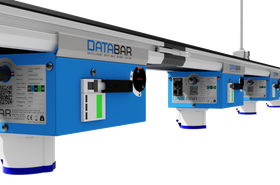Although I still remember a time without smartphones, tablets, and social media, I was lucky enough to grow up surrounded by this technology, and, as a result, education experts have (rightly or wrongly) classified my generation as “digital natives”.
When all is said and done though, I was probably one of many in my age group that didn’t stop to consider how all this technology works and who was behind it all. In my mind, the cloud was modern day wizardry and data storage sounded like something for MI5 to be concerned with.
Somewhere along the way, it’s clear that the narrative of how this technology came to be was lost. There’s a whole industry behind the shiny new phone or laptop, and even the video streaming services we use every day rely on data centers to function.
It’s clear that the front-facing brands of this new tech have taken precedence over the massive industry behind it all, the industry that has enabled this technology (now considered vital to modern life) to materialize. In losing this narrative, this seemingly hidden industry is ultimately missing out on acquiring a lot of young talent.
Imagine the workforce this industry could have right from the beginning, if only younger generations knew that this industry a) exists and b) is just as exciting and innovative to work for as famous household brands?
It goes without saying that there are already many companies hiring graduates or apprentices and welcoming new talent into this space. So, what I’m asking you to consider is if we could be doing more?
This isn’t just an inclusivity issue, but a discussion based around sustainability too. The definition of sustainability is undeniably multi-faceted, so in this instance let’s consider it in the sense of industry longevity.
I don’t doubt for one second that there is already so much talent and so many passionate people working in this industry, but it’s essential that we keep recruiting and actively invite the next wave of employees, these “digital natives”, to join us.
Natural talent
The benefits to brands having employees with a natural flair for using technology are just too great to ignore; they’ve nurtured their creativity by growing up with access to software such as Photoshop, as well as using social media platforms such as TikTok, so they are undeniably more likely to be well-adjusted to utilising technology ‘of the moment’.
Not only that, but they have a wider sense of awareness of current social issues at a younger age than their predecessors, perhaps due to the accessibility of information now, and they’re hungry to make their mark on the world.
When I was in my later teens and deciding what career path I wanted to take, I’d never heard of the industry that I work in today. It was only when I was in my final year at university that I listened to a talk from an alumni graduate, who spoke of her experience of working in the technology industry, that I knew I wanted (and could) do something similar.
I was drawn to the opportunity of working in an industry that could make real change in the functioning of everyday life – and that’s how I found Anord Mardix.
Change for good
According to a study by the Guardian, 62 percent of Millennials (born between 1981 and 1996) want to work for a company that makes a positive impact. And as for Gen Z, that percentage increases higher still.
In contrast to generations before them, at least 50 percent of Millennials prefer purposeful work to a high salary, and 53 percent would work harder if they knew they were making a difference to others.
Ignoring these demands from younger generations to come will ultimately leave giant technology and manufacturing brands vulnerable in the long run – failure to make the effort to change will mean that they are choosing to close themselves off to over two thirds of the upcoming talent pool.
So, it’s not surprising that companies are now making an effort to promote and share their values and ethical policies for several reasons, not just as the ‘tick box’ exercise it was once thought of being.
But companies beware, with a generation that is used to having information at their fingertips, a quick Google is all it takes to find out whether these claims are truthful – and they will check.
In a study conducted last year, both Millennials and Gen Z are wary of greenwashing and now actually expect it in some form, particularly from the industry front-runners, leading to a lot of cynicism and lack of faith in brands.
While this will have an obvious impact on purchasing decisions (perhaps more so in B2C markets), it also has a major impact on Millennials and Gen Z choosing an employer that suits them.
So, what can we do to ensure industry longevity after considering the above?
The first port of call would be for businesses within this industry, from the manufacturers to the data centers themselves, to work on their brands.
With so much riding on this industry attracting the right people, the onus is on us to continue building brands that people want to champion; do you have authentic values that people can get behind and do these values permeate throughout your business?
Let’s also be mindful of our promises for the future too. We know that younger generations are already jaded by empty words, so let’s drive a wave of action to facilitate small, progressive change instead.
Being successful in invigorating interest in younger generations starts with us, and this is arguably one of the biggest steps to ensure the future of the data centre industry.
Another way we can make the industry more appealing to newcomers is to make it ultimately more relatable: instil clear messages within our businesses about what we do and why we do it, what sectors are involved with and the impact we have on future technology.
Essentially, instead of being an industry that appears to be behind closed doors, reserved just for those who are in the know, we could choose to promote the scope of our work and what this offers our future employees.
We must also remember to pay special attention to the skill sets required to keep our brands ticking over; from marketing to sales, to production and fabrication roles, there is opportunity to join one of the fastest growing sectors in B2B whilst doing what you love – be it working with your hands or writing engaging copy.
Another consideration that we must mention is the inclusivity of the industry. It goes without saying that this industry is categorically male dominated, and I wonder if that is just ‘the way it is’, or if there’s more that we could do to invite young women to join this space.
Being completely transparent, I didn’t realise that this was an industry that I could join until I listened to that alumni graduate. She achieved a great deal of glass-ceiling shattering accomplishments that I couldn’t have idolized more in my early 20’s.
Knowing that there was an opportunity for me to follow in her footsteps was all the push I needed to choose this industry – and maybe there are more young women who need the same inspiration.
While I agree that this industry is technical and that the technology used is complex, there are also steps we can take to make it inclusive to people of all backgrounds and of differing levels of experience.
To that end, could we set up networking events for industry newbies, where they can learn about career opportunities and make connections with like minded individuals across other businesses within the same sector?
Giving our workforce the opportunity to make steadfast relationships may just be the difference in not only attracting new talent but retaining it too.
Ultimately by promoting ourselves and our values, our company cultures, and our efforts to make sustainable, ethical changes for our environment, we can look to encourage greater interest in working within this industry.
Not only that, but we can hope to create a gateway for more fresh talent to enter, ensuring the future of this industry for generations to come.
More from Anord Mardix
-

Sponsored How Anord Mardix’s modular solutions impressed one of the largest companies on Earth
Through landing its biggest project yet, Anord Mardix has proven that when it comes to modular solutions, teamwork (and hard work) really does make the dream work
-

Build a data center remotely? Well, sort of
How taking elements off-site during development can simplify the build
-

Sponsored Unwired world: How Anord Mardix’s DATABAR makes busway installation ultimately safer and easier
Anord Mardix’s DATABAR busway system slashes installation time, improves safety and requires no maintenance


